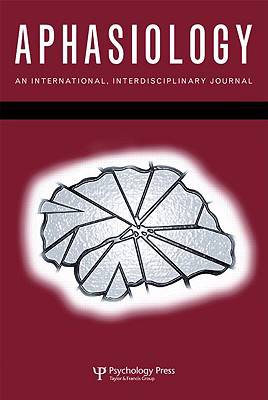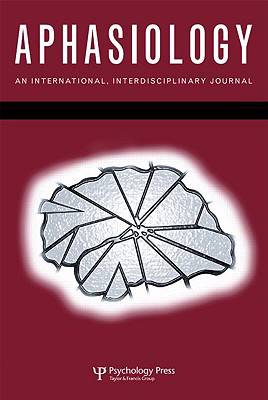
- Retrait gratuit dans votre magasin Club
- 7.000.000 titres dans notre catalogue
- Payer en toute sécurité
- Toujours un magasin près de chez vous
- Retrait gratuit dans votre magasin Club
- 7.000.000 titres dans notre catalogue
- Payer en toute sécurité
- Toujours un magasin près de chez vous
38th Clinical Aphasiology Conference
A Special Issue of Aphasiology
Description
This issue is made up of research findings presented at the 38th Clinical Aphasiology Conference. In keeping with the mission of CAC to foster new and innovative methods of assessment and treatment, and to stimulate scholarly discussion, the papers span the spectrum of approaches to aphasia and related neurogenic communication disorders, and present the very latest thinking in the field. Since its inception, CAC has promoted the development of research in clinical aspects of aphasiology, with the focus being on improving the communication between those with aphasia and their significant others. The papers in this issue continue this focus, with authors integrating theoretical and practical issues in order to forge ahead in this endeavour. From analysis and treatment of specific linguistic behaviours to interviews with people with aphasia and their families, to careful description of treatments involving everyday conversations, the papers demonstrate the range of approaches now possible in the treatment of aphasia. Further developments and potential integration of these different perspectives promises an exciting future for aphasia therapy.
Spécifications
Parties prenantes
- Editeur:
Contenu
- Nombre de pages :
- 296
- Langue:
- Anglais
- Collection :
Caractéristiques
- EAN:
- 9781848727199
- Date de parution :
- 01-08-09
- Format:
- Livre broché
- Format numérique:
- Trade paperback (VS)
- Poids :
- 5209 g






